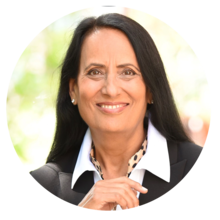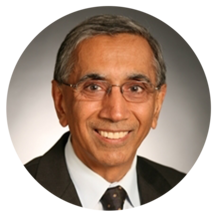About this Presentation
Demand driven MRP & sales and operations planning is discussed. The demand driven adaptive enterprise (DDAE) model incorporates four prerequisites for relevant information: 1) It has three relevant and linked ranges – the operational, tactical and strategic; 2) It features a flow-based operating model called the Demand Driven Operating Model (DDOM); 3) It has tactical reconciliation with the Demand Driven S&OP process; and 4) It has a suite of flow-based metrics that cuts across and connects all three relevant ranges. DDOM works in make-to-availability, make-to-order, engineer-to-order, and assemble-to-order and combination environments. The demand-driven models link operations to tactical plans to strategic plans. Tactical planning has always been the missing link in the planning horizon. DDOM bridges between operations and strategic planning. Linking strategy to operations at the organization’s control points is essential as it measures from what you plan to what you can actually do to what was actually done. One is looking for reliability, stability and velocity in the plant across three relevant ranges: planning, scheduling and execution. Adapting the demand driven operating model (DD S&OP) includes: demand driven materials and supply chain planning & execution; demand driven resource scheduling; demand driven finance & smart metrics; demand driven S&OP; and strategic thinking processes & demand driven operating models. DDOM ends the forecast distortion; the cost/flow conflict, and aligns strategy (planning), tactics (scheduling) and execution to link system flow to market demand. The end result is ROI maximization. Stemcell case study is provided to illustrate the significant and rapid organization results plus the impact of falling back into the cost-world thinking. Video length: . PDF: slides.
What Will You Learn
To help you get the most value from this session, we’ve highlighted a few key points. These takeaways capture the main ideas and practical insights from the presentation, making it easier for you to review, reflect, and apply what you’ve learned.

The speaker emphasizes the importance of understanding the basic principles of TOC and how they are grounded in demand driven strategies.
The speaker discusses the importance of visibility to relevant information for decision making in businesses.
The speaker introduces the concept of complex adaptive systems and how they relate to business and supply chain management.
Instructor(s)
Jennifer Eckman

Ms Alka Wadhwa
Alka Wadhwa is an experienced consultant and process improvement expert with over 24 years of expertise in the Theory of Constraints (TOC), Lean Six Sigma, and organizational performance optimization. She has successfully led projects in healthcare, financial services, and manufacturing, driving significant improvements such as a 67% boost in hospital operations and a 140% increase in outpatient visits.
Previously, Alka Wadhwa spent 17+ years at GE Global Research Center, where she led initiatives to enhance various GE businesses through advanced technologies, process redesign, and system optimization. Founder of Better Solutions Consulting, LLC, she specializes in using TOC, Six Sigma, and data analytics to streamline operations and build high-performance teams.
Her work has earned her multiple accolades, including the Empire State Award of Excellence in healthcare.

Dr Gary Wadhwa
Dr. Gary Wadhwa is a Board Certified Oral & Maxillofacial Surgeon with extensive experience in the field. He completed his Oral & Maxillofacial Surgery training at Montefiore Hospital, Albert Einstein College of Medicine in Bronx, NY, and has served as an Attending at prestigious institutions like St. Peters Hospitals, Ellis Hospital, and Beth Israel Hospital in NY. With a career spanning over two decades, he was the former CEO and President of a group specialty practice in NY from 1994 to 2015. Dr. Wadhwa holds an MBA from UT at Knoxville, TN, and has undergone additional training in System Dynamics at MIT, Health System Management at Harvard Business School, and Entrepreneurship and healthcare innovations at Columbia Business School. Committed to expanding access to Oral & Maxillofacial Surgery care, he is currently engaged in a meaningful project to provide healthcare services to underserved populations in inner city and rural areas through non-profit Community Health Centers.
